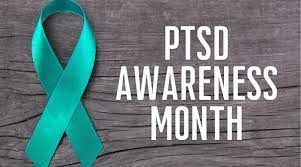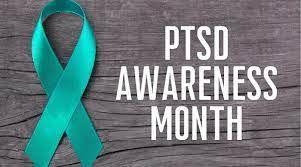KEY POINTS-
- Police officers can and do recover from trauma, even trauma involving children.
- Events involving child victims bring officers face to face with a brutal reality and the loss of innocence.
- Healing from child-related events can involve grieving openly and or a ritual honoring the victim.

June is post-traumatic stress disorder awareness month, PTSD. Many of my colleagues and I prefer the term post-traumatic stress injury, PTSI. Disorder sounds like a life sentence, an enduring condition from which there is little or no recovery. Bollocks! (That’s British slang and it has a nice onomatopoetic ring, meaning it sounds like what it means). With support and healthy coping, people can recover from traumatic stress. In 40 years of working with first responders, not only have I seen people recover, I’ve seen them grow stronger, wiser, and happier than they were before–whatever caused the trauma.
Many types of incidents create trauma. Because responders are different from one another, they often react in different ways, sometimes to the same event. Except when it comes to events involving children, which seem universally difficult to process. This is because the following ways cops cope with repeated exposure to human tragedy and cruelty don’t work when the victim is a child.
Cop Humor: Humor may be the primary way cops blow off steam and defend themselves against the terrible things they see nearly every day on the job. There’s nothing funny about a child who has been killed or abused. No way to make a joke that would be anything but distasteful, even to a hard-boiled veteran.
Blaming the victim: Cops need some emotional distance between themselves and the people they serve. Enough distance to preserve their ability to do the job for 20 to 30 years, but not so much distance they lose their humanity. It’s not hard to blame adults who are killed while committing a crime. Or to attribute free will to the actions that got them killed like driving drunk or using drugs. But it’s impossible to blame a child for his or her own abuse. Or to blame a baby for having negligent or cruel parents.
What is unique about events involving children? Many cops have children of their own. Sometimes children the same age as the victim they are attending. On occasion, their children may even look like the victim or wear the same pajamas or have the same lunch bag. This can close the distance officers need to behave professionally and act with objectivity. In events of accidental deaths or medical crises, the agony of the parents hits dangerously close to home.
Adults are supposed to love and protect children. When police officers and other first responders are unable to protect or save children it violates a cultural norm shared by everyone. Loading the trauma they experience with extra layers of shame, grief, regret, and sorrow.
Healing: Just as officers may react differently to the same event, their healing can take different paths. Seeing a victimized child is the end of innocence. Don’t bring your fears home. There is no turning back the clock, no way to pretend you can protect your own children and control their lives.
One common understandable, fear-driven response, is to restrict your children’s activities, investigate their teachers, their babysitters, their coaches, or track their movements. This kind of cop response can damage your relationships with your kids, and make them feel overcontrolled and under-trusted. All you can reasonably do to make them safe is to help them be alert and effective in their own surroundings. Try talking them through several scenarios, asking how they would react. Do this in an age-appropriate way that doesn’t scare them but gives them confidence in themselves.
Grieve with others. Talk through your grief with others who understand. Express your feelings of helplessness and your loss of innocence. Don’t turn your anger at the perpetrator or the unfairness of the human condition back on yourself or your family.
Remember the difference between trauma and tragedy. Trauma happens to you. Tragedy happens to others. Talk to a spiritual counselor of your choice. Process your grief through ritual. Plant a tree in that child’s memory, light a candle, make a donation, or start a program. Honor that child with the kindness and dignity they did not receive in life. Honor yourself for doing a job most people couldn’t and for facing an ugly reality toward which many people would turn their backs.


